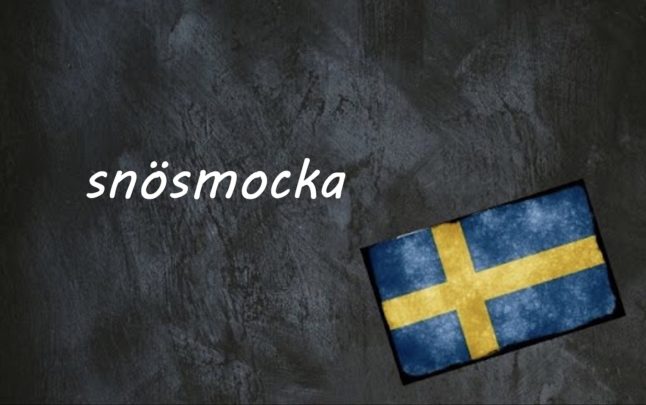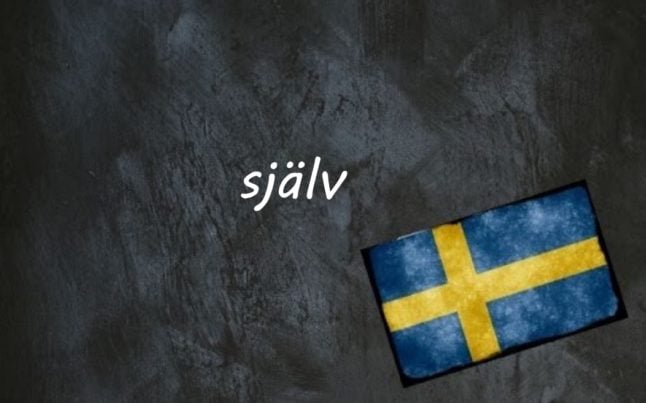Snösmocka is a word that describes heavy, sudden snowfall, and it’s only a recent addition to the Swedish lexicon.
We’ve looked into the background of the word snö previously, when we learned that snö appears in dozens and dozens of compound nouns used to describe types of snow as well as objects or activities made possible by the snow.
Smocka is a noun meaning something like “thump” or “wallop”, and is used figuratively as well as literally.
It’s probably used more in newspaper headlines, especially tabloids, than in everyday speech. A headline saying man åtalas för smocka (man prosecuted for hitting [someone]) is more brief and precise than saying misshandel (assault) as well as being more concise than using a verbal phrase.
A few examples of figurative smocka in headlines include Trumps smocka mot Macron (roughly: “Trump hits out at Macron”), Facebook riskerar GDPR-smocka på 14 miljarder (roughly: “Facebook risks being hit with a GDPR fine of 14 billion”), and Microsofts feta smocka till Box, Dropbox och Google: Gratis molnlagring (roughly: “Microsoft throws down the gauntlet for Box, Dropbox and Google with free cloud storage”).
In these metaphorical cases, smocka can be used with a variety of verbs: you can rikta (aim/direct) a smocka, ge (give) a smocka, or, in Trump’s case at the time, twittra (Tweet) a smocka. You can also få (receive/get) a smocka, in which case there might not have been anyone directly responsible.
MORE WINTER WORDS:
This brings us to snösmocka, which is also something of a tabloid term, albeit a fun one to say.
Its first reported use was in winter 2011, when media magazine Resume noticed the term in an Aftonbladet headline (which also contained the word oväder). “You need to vary the language,” the newspaper’s head of news said at the time.
Snösmocka is not an official meteorological term but is used to talk about heavy snowfall, often in a short period of time. But some are critical of these strong headline words (snömonster, literally “snow monster”, is another, along with snökaos or “snow chaos”), with some meteorologists arguing they are overly sensationalist and don’t make sense, which might make it harder to be taken seriously when there are truly severe weather warnings.
Either way, snösmocka has well and truly found a place in the Swedish language. Not only are you likely to see it pop up in newspapers and TV, but you should also look out for variations such as halksmocka (from the word halka meaning slippery conditions).
Example sentences:
Snösmocka på väg till Sverige.
Heavy snow on the way to Sweden.
Efter de senaste dagarnas snösmocka blir det nu mildare.
After heavy snow over the past few days it’s now getting milder.



 Please whitelist us to continue reading.
Please whitelist us to continue reading.
Member comments